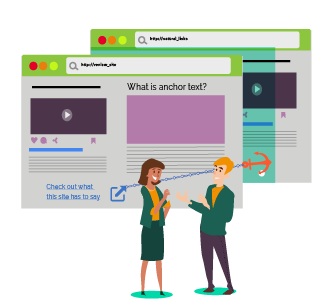Here’s the reality of the SEO landscape today – If your content isn’t useful to your customers or your target audience, it will be an uphill battle to achieve SEO success.
So how can you make their content work better for your customers and audiences and as a business website owner?So how can you make their content work better for your customers and audiences and as a business website owner?
As you have probably known, Google has clearly named content as one of the leading crucial factors for ranking on top of their search results.
But still, this subject has been a tough nut to crack for people who are unfamiliar with the digital marketing landscape.
What exactly does content relevance mean? More importantly, how can we achieve this?
This is what we’re here to find out. In this article, we will discuss what makes a piece of content relevant, and what are the ways we can use relevance to achieve SEO success.
By aligning your content with the specific needs and interests of your potential and existing customers, you can create a significant boost to your conversion (and ultimately your bottom line).
While this is good news for most users, it can become a problem for businesses, especially if they are a relatively young and unknown company.
This is because many organisations of all sizes have already hopped onto the content marketing bandwagon and they are competing for attention.
Although any business with the marketing budget can create sleek and expensive looking videos and content to get ahead of the completion, having relevancy can help you stand out and become more than just a face in the crowd.
Publishing blog posts, feature articles, infographics and videos that are appealing your audience is all well and good, but at the end of the day, these things don’t address their specific wants and needs.
Why Relevant Content Works?
Content relevance is all about your audience’s view of your content’s pertinence towards issues, opinions, needs, or interests.
How useful your content is for your audience is about its ability to help them arrive at a decision or achieve their goals.
Whenever a user goes to your website, they have a precise goal in mind — even if that goal is just to understand your business more.
How well your content can help them accomplish that goal is hugely important to how compelling your content is overall.
Relevant content increases your chances of your business being noticed
First impressions are always the most crucial and the longest-lasting moments of a website.
Everything from the design, layout to the opening paragraph or and footer bar can have a significant impact on the level of attention you can capture from your audience.
Visitors to your website often watch out for subtle and small indications that the content is relevant to our search query.
After all, all they have to do is to move their finger and hit the close or back button and look for another site promising the same answer or solution.
That is why you need to quickly establish a positive impression for your visitors so they will stick around and consume your content.
When you’re providing relevant content to your users, they will gravitate towards your business because of the positive usage signals they give to Google, who then rewards you with a high ranking position in their search results.
Relevant content is more authentic and believable
In a world of content where every content creator is vying for attention, there is a sore lack of genuine and sincere content that is not fake or deceptive.
That’s why when your content is relevant and trustworthy, your audience is more likely to believe.
From the topics you discuss on, to the way you interact with your audience, creating relevant content adds an air of authenticity to your business, and also helps establish you as a credible source of knowledge.
On the other hand, if you’re producing content that irrelevant to your audience’s wants and needs, or beats around the bush, you’ll find that not many people will be taking you seriously.
Today’s consumers expect both small independent companies and multinational corporations to be held responsible for their actions and live up to the promises that they give, which is something you cannot provide to your audience if your content is not relevant.
Relevant content places you in an authoritative position
In the past, for any business to be seen as an industry expert, they to launch a massive PR outreach campaign using the press to make your presence known.
However, this method can be ineffective if the press doesn’t see you as a ‘newsworthy’ business, and choose not to publish your content.
Today, businesses that don’t wish to take this path can still become an authoritative figure, by using their online content.
With content marketing, you can put out your own positive content through platforms controlled by you, such as your business blog or your Facebook page.
When your content is relevant, you will be perceived by your audience as a trustworthy and reputable authoritative figure.
When your audience trusts you, they will value your opinions, and more likely to believe you with their money too.
Relevant content shows that you have got something important to say
When your audience gets overwhelmed by too much noise online, they can feel lost and confused.
But when you focus your efforts on only relevant content, your message becomes louder than your competitors, and your customers will recognise that you’ve got something important to say.
You need to see if the channels you are using to interact with your audience (like social media or forums) are applicable to your business.
Focus on publishing on the channels that will create the most returns for your effort. From the nature of conversations to the topics your customers are discussing, find out whether it is worth participating in or not.
Relevant content gives customers reasons to do business with you
If you take the time to produce content that is of interest to your audience and recognise their consumption preferences, you’re more likely to win them as customers.
Building strong connections and establishing brand loyalty takes time and consistency from you as a content publisher.
When you are producing content that doesn’t fail to disappoint your audience, you are telling your prospects that you’re here to provide a service.
And your prospects will be grateful for your efforts and will reward your effort with their loyalty and their money.
How to Improve Your Content’s Relevance and Usefulness
Here are some of the methods you can take to make your content more relevant and useful to your audience:
1. Produce Detailed Content Geared Toward Specific Needs
With the digital world bulging at the seams with content, there’s no shortage of content out there for your audience to consume.
Web users want content that matches both their level of expertise and their needs.
When your content is too general or vague, your audience will feel that your content is geared for someone with different needs. This is usually someone who is newer or knows less about a topic.
To avoid this pitfall, you need to have a deep understanding of your audience and their specific needs. Then you need to publish content that is high-level enough to meet their needs.
So how do you produce content that can satisfy all your users? You layer your content with varying levels of expertise.
By recognising what those different levels of expertise are and layering your content to meet them, you can appeal to all types of user behaviours.
You can then craft content that satisfies their level of expertise. You can also create layers within your content to make it more usable for multiple audiences.
2. Assure Your Audience of Your Content’s Completeness
Another common reason that people feel that content isn’t helpful to them is that they think the content feels incomplete.
If users are unable to fully trust your content’s completeness, they are also more likely to perceive you’re your content as irrelevant.
Fortunately, there are many ways to assure your users that your content is complete, such as creating a library of ‘how-to’ guides.
In how-to guides, you can describe the process in great detail to allow the user to have a comprehensive view of the process from beginning to end.
Another way to increase the relevance of your content is to provide the links that your users will find useful if they would like to learn further on a particular topic. Having multiple interlinked pieces of content can help your content look more padded out and comprehensive.
It’s almost impossible to create a one-size-fits-all piece of content. After all, relevance is entirely dependent on who’s reading it.
Part of the reason why relevance seems enigmatic is that it is often seen as an inert entity – something that you can attain or achieve. But this is not true.
Relevance is more of a meaningful interaction than flashy graphics or sleek design.
And relevance can be determined as long as you can identify of the user who is consuming your content and understand their response towards your content.
That’s why you need to craft a buyer persona or a customer persona. This is a crucial step to understand your users before you can ever hope to be relevant to them.
A persona should capture the fundamental principles behind who’s is buying your product, and why they’re buying it.
Instead of looking at the profile of your users on a surface level, think about what is motivating them, or what are the issues that they’re facing.
Only by empathising with the customer can you address his problems, his queries, and concerns. This is where relevance starts to take shape – it begins with knowledge.
If you’re lucky, you already have a copy of the customer persona buried somewhere deep within your marketing materials.
Otherwise, if you don’t have a persona, it’s always a good idea to start creating one. It will be well worth your time.
3. Ensure Your Content Is Timely
Another reason users question a content’s relevance is when it is not timely.
Users expect the most up-to-date information to help them reach their goals, so you should always make sure the information that you publish is up to date.
Create a schedule that you can follow (ideally every month or every quarter) and go through your published content.
Are there any portions of the content that is dated or not applicable to today? Update this information if required.
If you are creating content that is dependent on trending news, you will need to update your content more often.
Alternatively, if you find yourself short of time to continue updating your old content, you should consider producing evergreen content instead.
Evergreen content is pieces of content that are relevant for long periods of time and do not need to be updated continuously.
But you may find that only some topics can be evergreen (depending on your industry or niche), so aim to strike a balance between timely and evergreen content.
In conclusion
Content can be an incredibly useful and influential online tool, which can take your marketing activity to new heights without the need for an expensive marketing budget.
But in order to get in front of the right crowd, grab hold of their attention and convert them into paying customers, your content will first need to be relevant.
You can choose to take the educational path, where you give your target audience useful and valuable information about a specific subject or product.
Or you could make content exciting and entertaining, which tying together educating your audience with a mix of exciting and amusing elements to keep users engaged.
But ultimately, your content needs to have a purpose that your audience can relate to.
When you do, you’ll find that your content stands a higher chance of reaching the right crowd.
You will also come across as more authentic and believable than your competitors, and position yourself as an authoritative figure in your industry.
Having consistently relevant content demonstrates that your business has a strong message, and gives your audience a reason to become your loyal customers.







